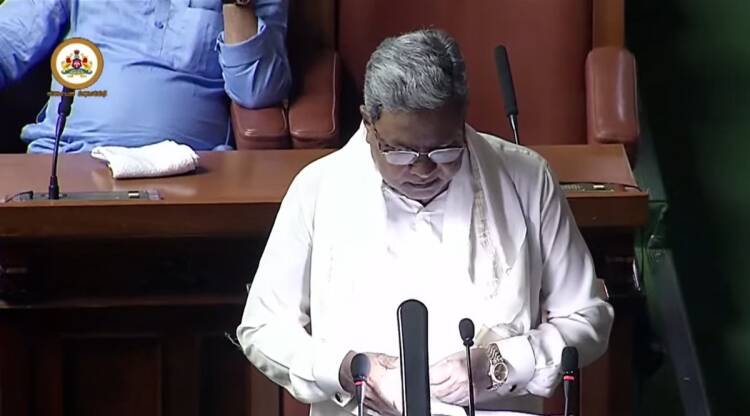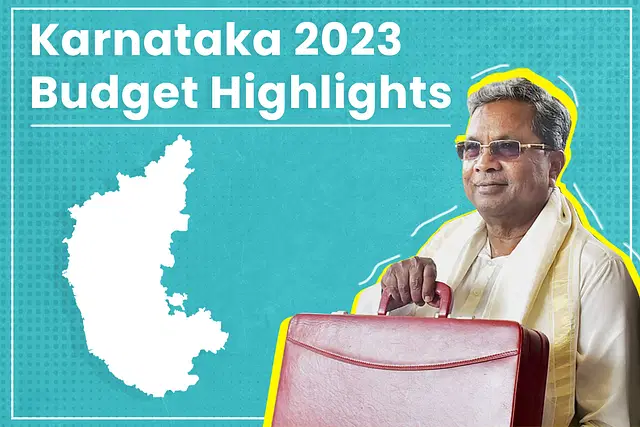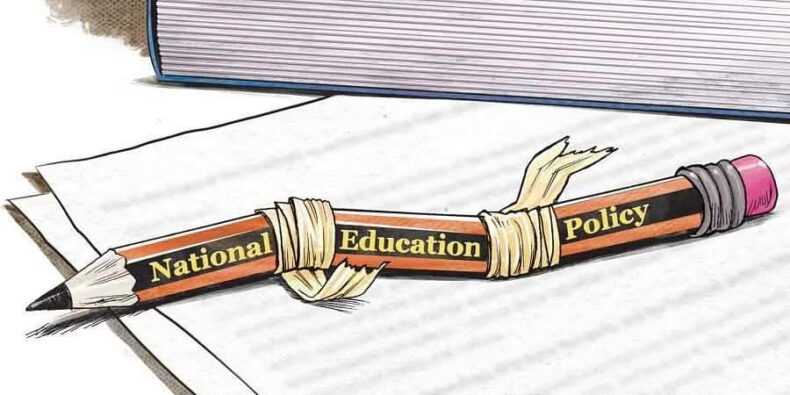On Friday Karnataka’s Chief Minister Siddaramaiah delivered the first state Budget of the Congress government and announced that the National Education Policy (NEP) introfduced by the Central Government in 2020 will be replaced with a State Education Policy specific to Karnataka.

The primary emphasis of the Budget is to alleviate the impact of inflation on the citizens by introducing guarantee schemes. Siddaramaiah state that through the five guarantees, over one crore families will receive a total transfer of Rs 52,000 crore. He highlighted that this initiative aligns with the concept of Universal Basic Income, which is claimed to be implemented for the first time in India.
As part of the healthcare initiatives, Chief Minister Siddaramaiah announced the installation of Automated External Defibrillators (AED) in all district and taluk hospitals as a tribute to the late actor Dr Puneet Rajkumar. Additionally, he mentioned that a grant of Rs. 70,427 crore has been allocated for schemes specifically aimed at benefiting women.
Addressing the controversial Mekedatu project, the Chief Minister stated that appropriate measures would be taken to secure clearance for its implementation. He also emphasized the identification of land for compensatory afforestation and assured that land acquisition for this purpose would be given priority.
On Friday, Chief Minister Siddaramaiah presented his 14th budget at Bengaluru’s Vidhana Soudha. The reason for this budget presentation is that the budget previously presented by former Chief Minister Basavaraj Bommai is only applicable until the end of the month.
This marks Siddaramaiah’s seventh budget presentation during his tenure as Chief Minister, setting a record for the highest number of budgets presented by any Chief Minister or Finance Minister in the state of Karnataka. The new budget will come into effect from August 1 onwards.
Several notable measures aiming for social welfare to be implemented
The government of Karnataka has decided to increase the monthly pension for unmarried and divorced women as well as gender minorities from ₹600 to ₹800. This will benefit approximately 1.32 lakh beneficiaries.

The Karnataka government has allocated Rs. 30 crores to establish trauma centers in Mysuru and Kalaburagi. These trauma centers aim to provide critical medical care and support to accident and trauma victims. Additionally, the government plans to initiate an automated and centralized blood bank at Bangalore Medical College with a budget of Rs. 5 crores which will help streamline blood collection, storage, and distribution processes for efficient and timely availability of blood for patients in need.
Chief Minister Siddaramaiah has unveiled the budget allocations for several sectors in Karnataka. An amount of ₹37,587 crores has been allocated for the Education sector, accounting for 11% of the total budget allocation.
₹24,166 crores have been allocated for Women and Child Development, representing 7% of the total allocation. Additionally, the Health and Family Welfare sector has received ₹14,950 crores, which makes up 4% of the total budget allocation. The Karnataka government is also set to increase the additional excise duty on beer from 175% to 185%,
Siddaramaiah, the Chief Minister, has expressed his intention to propose certain amendments to the Forest Rights Act. He acknowledged that the Act is posing challenges when it comes to providing houses to forest dwellers. To address this issue, he plans to organize a meeting with the central government to discuss the necessary amendments that should be made to the Act. The objective is to find solutions that facilitate the granting of houses to individuals residing in forest areas.
After an extensive budget presentation lasting nearly three hours, Karnataka Chief Minister Siddaramaiah concluded with the slogan ‘Jai Hind, Jai Karnataka.’ Throughout his presentation, Siddaramaiah announced various measures and allocations, including funds for implementing the election promises made by the Congress party. These measures and allocations aim to address key issues and fulfill the commitments made by the government.













